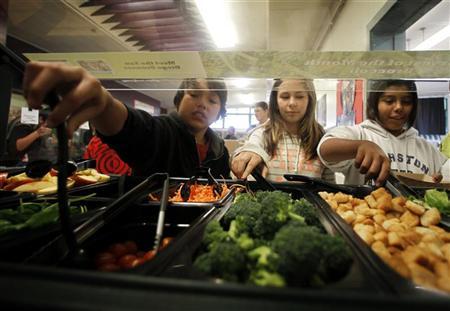Thanks to a grant from CDFA’s Farm to School Incubator Program, the Porterville Unified School District in Tulare County is bridging the gap between local farms and school cafeterias to bring fresh, sustainable fruits and vegetables to students’ plates. The program has also created an opportunity for students working with an organization called Climate Action Pathways for Schools (CAPS) to take the lead in connecting with farmers and helping to educate their peers about the produce and the farms where it was grown, as well as potential career pathways in agriculture.
Following are excerpts from a Q&A with Porterville Unified School District (PUSD) Director of Student Nutrition Services Olga Sanchez about the program.
Can you give an overview of the Farm to [School] Incubator Grant Program at PUSD?
The Farm to [School] Incubator Grant Program at PUSD aims to bring locally sourced, farm-fresh food to our school cafeterias. This two-year grant program allows us to establish connections with local farmers and learn about their produce, harvest times and sustainability practices. Porterville is an agriculturally dense community which gives us the unique opportunity to incorporate fresh, nutrient-dense food into school meals and reduce our carbon footprint by sourcing locally.
An important component of the Farm to [School] Incubator Grant Program is education. CAPS interns have taken the lead in reaching out to farmers, interviewing them about their agricultural practices and creating educational materials for our Farm to School Food Show. The Food Show not only showcases locally sourced ingredients but also educates students about where their food comes from and the importance of sustainable agriculture.
During the Food Show, students had the opportunity to sample dishes made from locally sourced ingredients and vote for their favorites to determine which recipes would be added to the school menu. Recipes included pupusas, chicken yakitori, caldo de res, meatloaf, and fish tacos. In total, around 400 students contributed to trying the recipes and helping us shape next year’s school menu. Additionally, we invited farmers to participate in the event, giving students the chance to learn more about their farming practices and careers in regenerative ag.
What are you looking forward to for the program in the coming years?
Currently, we’re in the first year of our two-year grant cycle. This first year has been focused on establishing connections with local farmers, sourcing ingredients and testing new recipes for our school menu. As we move into the second year of the grant, I want students to have the opportunity to visit the farms, become familiar with their farming practices and understand their impact on sustainability. Using metrics and tools from CAPS, these students can assess these farms’ environmental impact to help them understand the effects of food production on climate.
Click here to read the full Q&A on the CAPS website.



